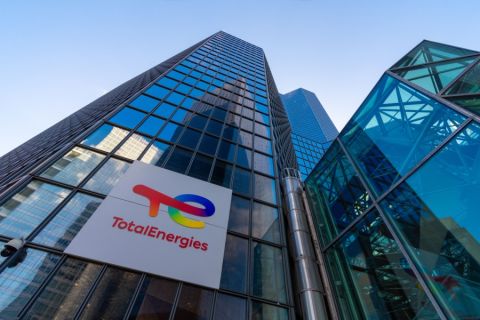Meeting future energy challenges requires leadership, according to Andy Swiger, executive vice president, ExxonMobil Production Co. "The answer to how we will do this is leadership." Swiger was among speakers at the recent Deloitte oil and gas conference in Houston. The largest energy producers are state-owned companies, while the supermajors are primarily enablers, he said. "We are not the world's principal owners of oil and gas or the largest producers. ExxonMobil is the world's largest non-government-owned energy company. Despite this, we produce only 4 million barrels of oil equivalent, which accounts for less than 2% of the world's consumption." Yet the company has a number of strengths, such as human, technological and financial capital, which allow it to do its share in providing the world with energy, he added. "Our talent knows no borders," Swiger said. "We are a globally functional organization that maximizes performance. Our management teams are expected to meet standards on a global basis. Our production team averages 20 years of experience per person." ExxonMobil is also not afraid to sink a lot of capital into research and development. The company invested $600 million in R&D in 2004. "The difference between conventional and unconventional resources is technology. Technology continues to allow the industry to defy imminent [production] decline." John Knight, Statoil ASA senior vice president, business development and acquisitions, disagrees completely with the industry's labels. "I don't like the labels 'supermajor' and 'national oil company.' They're 30 years old and they tell us nothing about the past or the future," Knight said. "We need to find a different way of labeling each other." Knight also didn't agree with Swiger's outline of the roles of the supermajor and the national oil company (NOC) in meeting the challenge of global energy demand growth. "Many national oil companies are clear about their role and it's much different than what [Swiger] outlined," he said. Knight believes we are about to enter a world as politicized as the 1970s, and because the business will increasingly become more about who you know than what you know, companies must be geopolitical. He also said the era of mergers and acquisitions is just beginning. "We are going to see some major realignments in the next 36 months, such as the possible combination of BP and Sinopec," he said. "I have a sense they're coming." Knight also expects growth in internationalizing NOCs. Four internationalized NOCs exist today. He expects a dozen by 2015.
Recommended Reading
TotalEnergies Launches Wind Project to Power North Sea Platform
2024-08-29 - TotalEnergies’ floating offshore wind turbine will be located 2 km west of the Culzean gas production platform and is expected to be fully operational by year-end 2025.
Energy Transition in Motion (Week of Sept. 6, 2024)
2024-09-06 - Here is a look at some of this week’s renewable energy news, including $7.3 billion in clean energy funding for rural Americans.
Equinor, Dominion Place Winning Bids in US Offshore Wind Sale
2024-08-14 - The offshore wind lease sale for two areas in the Central Atlantic brought in nearly $93 million, according to the U.S. Bureau of Ocean Energy Management.
Energy Transition in Motion (Week of Oct. 11, 2024)
2024-10-11 - Here is a look at some of this week’s renewable energy news, including nearly $7.9 million in bids for geothermal leases in Nevada.
Ørsted, Mission Clean Energy Form Energy Storage JV
2024-08-08 - The initiative marks Ørsted’s first standalone battery storage partnership in the U.S. and globally.
Comments
Add new comment
This conversation is moderated according to Hart Energy community rules. Please read the rules before joining the discussion. If you’re experiencing any technical problems, please contact our customer care team.




